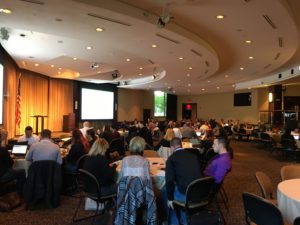At a pretty young age, I discovered I wasn’t very good at most sports. I tried the normal ones: baseball, soccer, basketball, but I didn’t really seem to find any hand-eye coordination, running ability, or a general sense of how to be good at sports. In third grade, I asked my Mom to try out for the local swim team because some of my friends were on it and she was reluctant to say yes. I hadn’t necessarily excelled at swim lessons growing up and she thought that I would be bored just doing laps over and over.
Through her reluctance, she let me try out, but I didn’t make it because my backstroke wasn’t up to par. They recommended that I take a few private lessons and then I could try out again and start on the team. My parents got me a few private lessons, and about a month later, I tried out and made the swim team.
Fast forward, 10 years later and I am finishing my swim career on an NCAA Division 1 varsity swim team, scoring for my team in guess what stroke, backstroke. Never could anyone have predicted that I would go on to improve and have the success in the sport that I did. Now, I wasn’t some swimming prodigy, and it took a lot of hard work to get to where I was, but not everyone goes on to be a collegiate athlete!
Almost every day (especially on Facebook), we see these stories of extraordinary people excelling under incredible circumstances. We hear and see stories like of Michael Oher (watch The Blind Side if you somehow avoided Sandra Bullock’s amazingness), where people go from nothing to the best in their field. While we all love a great underdog story, it’s hard to relate to these improbable situations. There’s a pretty big chance that not many of the people reading this blog post are undiscovered football stars or musical geniuses, and although we may love watching these stories, it’s a struggle to relate.
That’s why we need to find these success stories in our own lives. I didn’t go on to play in the NFL or win an Olympic medal, but I went from not making the swim team at 8 years old, to competing in the NCAA. If I had just given up and tried a new sport, the course of my life would have been completely altered.
With the prevalence of the media, we see these extraordinary stories all the time. The media loves to sell these almost impossible moments to us because we can’t look away! This isn’t going to change. The news isn’t all of a sudden going to start talking about my slightly above average swimming career just so we can celebrate something more normal!
My advice for my fellow Gen-Zer’s is to look for these moments of success in your life. Celebrate them. And then keep moving forward for another moment of success. The reason I had a slightly above average swimming career was that I always wanted more, but I never let myself get burnt out. I would go get pizza to celebrate after a good meet, but I’d be right back in the pool working hard on Monday.
Next time you do something pretty freaking cool, pat yourself on the back, get a treat, and then get your butt working again the next day.
This post was written by Cameron Sackett (not Tim) – you can probably tell because it lacks grammatical errors!
HR and TA Pros – have a question you would like to ask directly to a Gen Z? Ask us in the comments and I’ll respond in an upcoming blog post right here on the project. Have some feedback for me? Again, please share in the comments and/or connect with me on LinkedIn.



